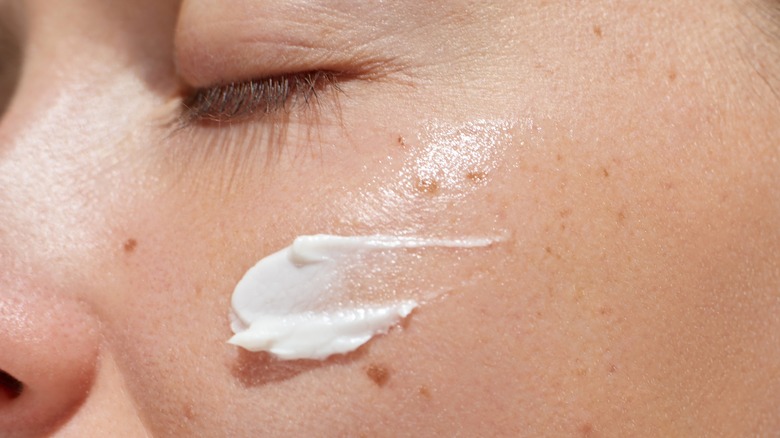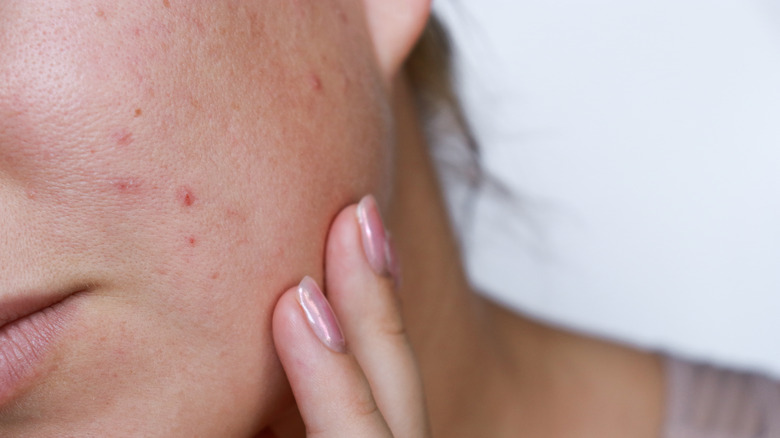How Omega-3 Supplements Can Transform Your Skin Health
When people think about beauty and skin supplements, they tend to think of biotin or collagen. But did you know that omega-3s can actually do wonders for your complexion?
Omega-3 fatty acids have typically been relegated to preventing cardiovascular and neurolgoical conditions, so people don't think of them as beneficial for beauty. However, the powerful micronutrient can do so much more than improve your heart health, with some research showing that they can help with everything from hormone production to cell function and UV damage protection — all of which can have positive effects on your skin.
One of the more common sources of omega-3s you've probably seen is fish oil, but popular food sources include certain plant-based oils like flaxseed. There are even some skincare serums that contain the fatty acid that can be applied topically. In any case, if you start working this super nutrient into your diet or beauty routine, here are some skin benefits you can potentially expect to see.
Supporting your skin barrier
The outermost layer of our skin is called the skin barrier, and its primary job is to protect the inner layers from infection and radiation. Over time, however, due to factors like sun exposure, pollutants, and dry air, the skin barrier can become damaged, in turn making it susceptible to dryness, texture, and irritation.
While more research is needed to determine the exact dosages required for each person, some studies have demonstrated that consuming omega-3 supplements can improve skin barrier health. For instance, one 2011 study found that women who consumed ½ a teaspoon of flaxseed oil (which is rich in omega-3s) per day for three months reported a 39% increase in skin hydration and a reduction in overall skin sensitivity. A separate study showed that ingesting omega-3s can treat and prevent transepidermal water loss (which is the primary way your skin loses moisture throughout the day).
This means omega-3s have the potential to both strengthen the skin's ability to deal with irritants, as well as improve its ability to retain moisture. This keeps the skin feeling soft and smooth, while working to preventing dryness.
Managing inflammatory skin conditions
Beyond strengthening the skin barrier, some skin researchers have hypothesized that working omega-3 supplements into one's diet can potentially help symptoms of existing skin conditions. Adding fatty acids to your diet and supplement routine has been shown to improve the fatty acids present in your skin, which helps to balance your skin's overall inflammatory response. One promising study found that adults with atopic dermatitis (aka eczema) who regularly consumed omega-3 supplements for four months experienced a reduction in the severity of their symptoms.
On top of that, other research has suggested omega-3s have serious potential for combatting acne. Some small-scale studies detected a correlation between consuming fish oil supplements daily with improved acne. This is because of the fatty acid's ability to help the skin regulate oil production and reduce inflammation.
And if that's not enough, omega-3s can help to decrease the amount and intensity of existing acne lesions. Studies have found that omega-3s can help accelerate wound healing which can shorten the amount of time a blemish is visible on your skin. As an added bonus, omega-3s can also help you manage the side effects of acne medications like Accutane.
Preventing skin cancer
Although the body needs vitamin D, it is well documented that over tie, the sun's rays have negative effects on our skin health. In fact, sunlight exposure can actually induce an immunosuppression response that weakens your skin's ability to fight infections and cancer. In other words, along with the sunlight being capable of turning our cells malignant, sunlight-induced immunosuppression is making it harder for our bodies to detect those malignant cells. This is what can and does sometimes lead to skin cancer. As explained in Science Daily, taking omega-3s helps to mitigate this immunosuppressive response by reducing your skin's sensitivity to ultraviolet (UV) rays.
Other research has suggested that topically applying fatty acids could help mitigate sun sensitivity as well as combat visible signs of existing sun damage, like hyperpigmentation. Of course, this shouldn't be considered an alternative to regular sunscreen. Instead, those looking to try omega-3s should consider pairing the antioxidants with an SPF for even more protection.



